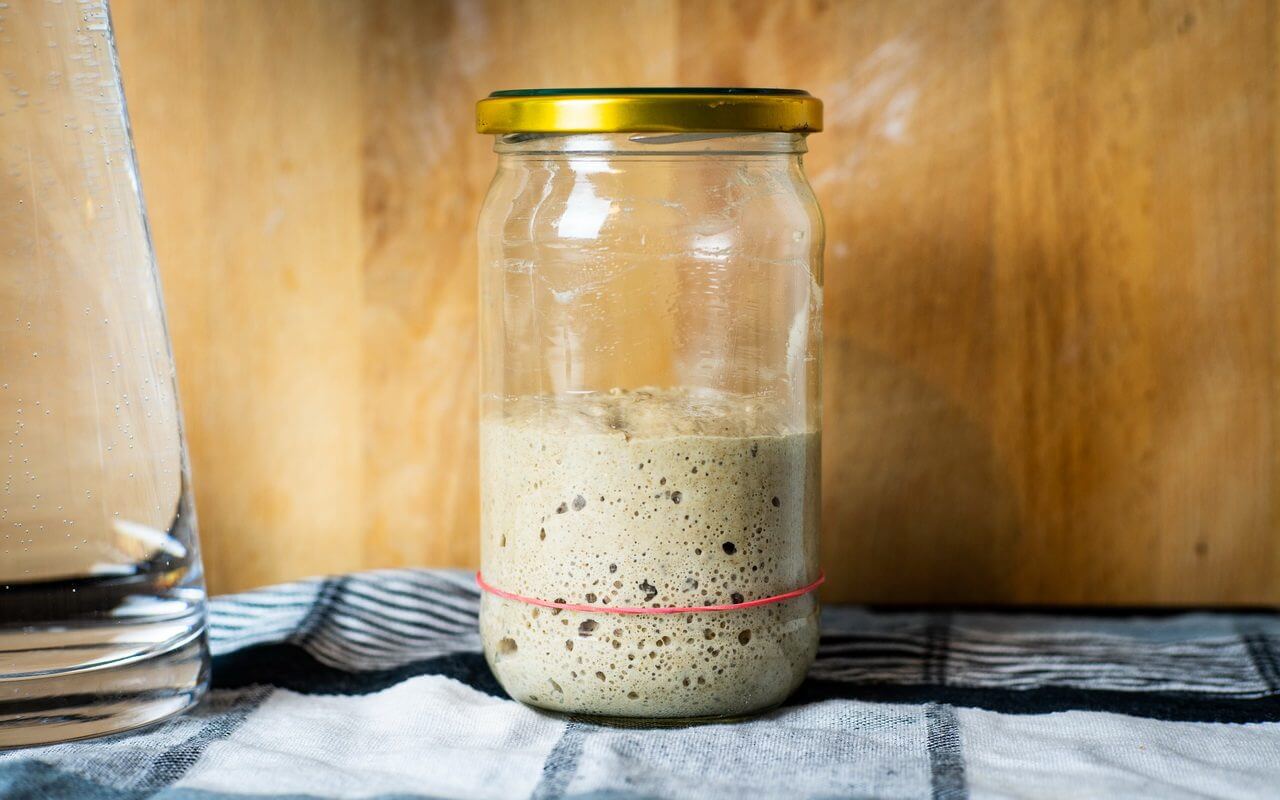Are you ready to uncover the secret world of sourdough and its myriad health benefits? This article is your golden ticket to understanding why sourdough isn’t just a tasty treat, but a nutritional powerhouse as well.
In today’s world, maintaining a healthy lifestyle can be a challenge. With our busy schedules, it’s easy to rely on quick, processed foods. But what if I told you there’s a delicious, versatile, and healthy alternative? Enter sourdough, a bread that’s not only delightful to your taste buds but also packed with nutritional benefits that can contribute to a healthier lifestyle.
As a seasoned baker and a sourdough enthusiast, I’ve spent years exploring the art of sourdough baking. From creating the perfect starter to baking a loaf with a beautiful crust and airy crumb, I’ve experienced the joy of sourdough baking firsthand. And now, I’m here to share that knowledge with you.
So, are you ready to embark on a journey of taste and health with sourdough? Stick around, because we’re just getting started.
Table of Contents
- What is Sourdough?
- The Science Behind Sourdough
- Health Benefits of Sourdough
- Sourdough and Mental Health
- Sourdough in Different Cultures
- Conclusion
- Frequently Asked Questions (FAQ)
What is Sourdough?
Before we delve into the health benefits, let’s first understand what sourdough is. Sourdough is a type of bread made from fermented dough. The fermentation process is kick-started by a sourdough starter, a mixture of flour and water that has been allowed to ferment over several days. This starter is teeming with natural yeasts and beneficial bacteria, which give sourdough its characteristic tangy flavor and unique texture. If you’re interested in creating your own starter, check out our guide on how to create a sourdough starter.

The Science Behind Sourdough
Sourdough’s unique characteristics come from the science of fermentation. When you mix flour and water, naturally occurring yeasts and bacteria start to eat the sugars in the flour. As they eat, they produce carbon dioxide, ethanol, and lactic acid. The carbon dioxide gets trapped in the dough, causing it to rise. The ethanol and lactic acid give sourdough its distinctive tangy flavor.
The bacteria also produce enzymes that break down some of the proteins and carbohydrates in the flour, making the bread easier to digest and releasing additional nutrients. This process is what makes sourdough bread different from breads made with commercial yeast, which don’t have the same fermentation process.
Health Benefits of Sourdough
Sourdough bread is a nutritional powerhouse, and here’s why:
- Improved Digestibility: The fermentation process breaks down some of the gluten in the dough, making it easier to digest compared to regular bread. This is a boon for people with gluten sensitivity.
- Rich in Probiotics: The beneficial bacteria in the sourdough starter are probiotics, which are good for gut health.
- Lower Glycemic Index: Sourdough bread has a lower glycemic index than most other breads, meaning it doesn’t spike blood sugar levels as drastically.
- Rich in Vitamins and Minerals: Sourdough bread is a good source of vitamins like B1-B6, B12, folate, thiamin, niacin, riboflavin, vitamin E, selenium, iron, manganese, calcium, magnesium, phosphorus, zinc and potassium.
Remember, maintaining your sourdough starter is key to reaping these health benefits. If you need tips on how to do this, check out our guide on how to maintain a sourdough starter.

Sourdough and Mental Health
Baking sourdough can be a form of therapy. The process of kneading dough can be a stress reliever, and watching your bread rise and develop can be incredibly satisfying. Plus, the act of creating something from scratch can boost your mood and self-esteem. So, sourdough isn’t just good for your body—it’s good for your mind too!
Sourdough in Different Cultures
Sourdough has a long history and is a part of many different cultures around the world. From the crusty French pain au levain to the soft and tangy Ethiopian injera, sourdough takes many forms. Each culture has its own techniques and traditions when it comes to sourdough, but they all share a love for this unique bread.
Conclusion
Sourdough bread is more than just a baking trend; it’s a wholesome, nutritious choice that offers numerous health benefits. From its probiotic properties to its lower glycemic index, sourdough is a fantastic addition to any diet. If you’re ready to embark on your sourdough journey, don’t miss our ultimate guide to sourdough. Happy baking!

Frequently Asked Questions (FAQ)
Is sourdough bread the healthiest?
Sourdough bread is one of the healthiest types of bread due to its probiotic content, lower glycemic index, and improved digestibility.
Is it healthy to eat sourdough bread everyday?
Yes, it can be healthy to eat sourdough bread every day, as it is rich in nutrients and easier to digest. However, like all foods, it should be consumed as part of a balanced diet.
How much sourdough bread should you eat a day?
The amount of sourdough bread you should eat in a day depends on your individual dietary needs and goals. As a general guideline, one to two slices per meal is a common serving size.
Is sourdough bread high in carbs?
While sourdough bread does contain carbs, it has a lower glycemic index than many other types of bread, meaning it won’t spike your blood sugar levels as much.
What are the pros and cons of sourdough bread?
The pros of sourdough bread include its nutritional benefits, such as probiotics and lower glycemic index. It’s also versatile and has a unique, tangy flavor. The cons include the time and effort required to maintain a sourdough starter and bake the bread. It may also not be suitable for those with severe gluten intolerance or celiac disease.
If you’re a beginner in the world of sourdough, our guide on sourdough bread for beginners is a great place to start.








